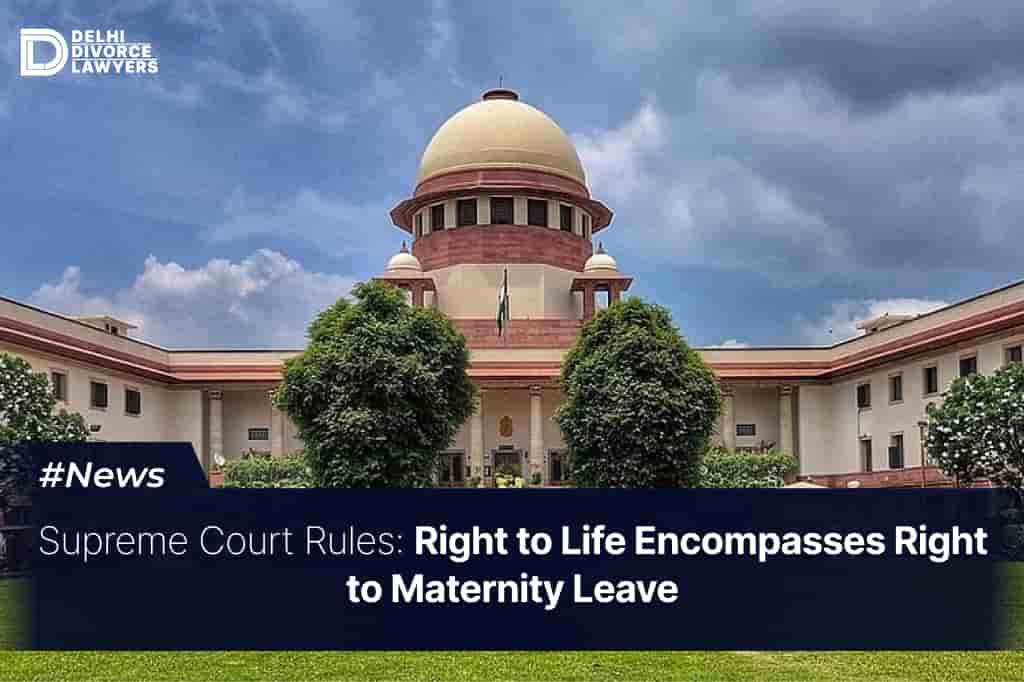The Court held that a woman is entitled to maternity leave even if the child is from a second marriage and earlier children live with ex-spouse.
The Supreme Court recently ruled that maternity leave is a fundamental component of a woman’s reproductive rights and her right to life under Article 21 of the Constitution. The Court stressed that maternity leave cannot be denied simply because the child is the third one or was conceived during the woman’s second marriage.
A Bench consisting of Justices Abhay S. Oka and Ujjal Bhuyan noted that rejecting maternity leave on the basis that the child is the woman’s third constitutes a violation of her fundamental rights guaranteed by Article 21.
The case arose when a government school teacher from Tamil Nadu applied for maternity leave in 2021 after conceiving her first child from her second marriage. She had joined government service in 2012 and had two children from her previous marriage, who stayed with her former husband following their divorce in 2017.
Later, she remarried and gave birth to a child from her second marriage. In 2021, her application for maternity leave was rejected by the district education office, referring to Rule 101(a) of the Tamil Nadu Fundamental Rules, which allows maternity leave only for women government employees with fewer than two surviving children. The authorities argued that Umadevi was not eligible since this was her third child.
After her maternity leave request was denied, she filed a petition with the Madras High Court. A single-judge bench ruled in her favor, stating that the two-child limit should not be strictly applied in her situation since her previous children were not under her custody and were born before she joined government service.
However, the State government challenged this ruling, and a Division Bench of the High Court overturned the earlier decision. The Bench maintained that the rule must be applied consistently to everyone and further stated that the right to maternity leave does not qualify as a fundamental right.
“Grant of maternity leave is not a fundamental right. It is either a statutory right or a right which flows from the conditions of service,” the Division Bench held.
Unhappy with the High Court’s ruling, the woman approached the Supreme Court. The apex court rejected the High Court’s reasoning, noting that the fundamental right to life under Article 21 includes a woman’s reproductive autonomy. It also highlighted that population control measures should be balanced with the dignity and well-being of working women.
“The right of every woman to make reproductive choices without undue interference from the State is central to the idea of human dignity. Deprivation of access to reproductive healthcare or emotional and physical well-being also injures the dignity of women,” the bench noted from its previous decisions.
The Court also recognized that the woman’s previous children were born before she joined government service and that her current pregnancy is from a legally valid second marriage.
“The fact that the appellant’s spouse had two biological children from his first marriage would not impinge upon the entitlement of the appellant to avail maternity leave for her sole biological child,” the bench noted referring to its earlier decision Deepika Singh Vs. Central Administrative Tribunal.
Rejecting the State’s argument that granting relief would undermine population control efforts, the Court stressed the need to balance population regulation with the protection of reproductive dignity.
The Court referred to India’s international obligations under the Universal Declaration of Human Rights, the Convention on the Elimination of All Forms of Discrimination Against Women (CEDAW), and the International Covenant on Economic, Social and Cultural Rights, asserting that the State must ensure its population control policies respect the constitutional guarantees of dignity and individual autonomy.
“The object of having two child norm… and the object of providing maternity benefit… are not mutually exclusive. The two must be harmonized in a purposive and rational manner to achieve the social objective,” the Court opined.
The Court held that the two-child rule should not be applied rigidly or mechanically to deny maternity leave in cases like this. It allowed the woman’s appeal, set aside the Division Bench’s decision, and ordered that she be granted maternity leave under Fundamental Rule 101(a), along with all related benefits to be provided within two months.

